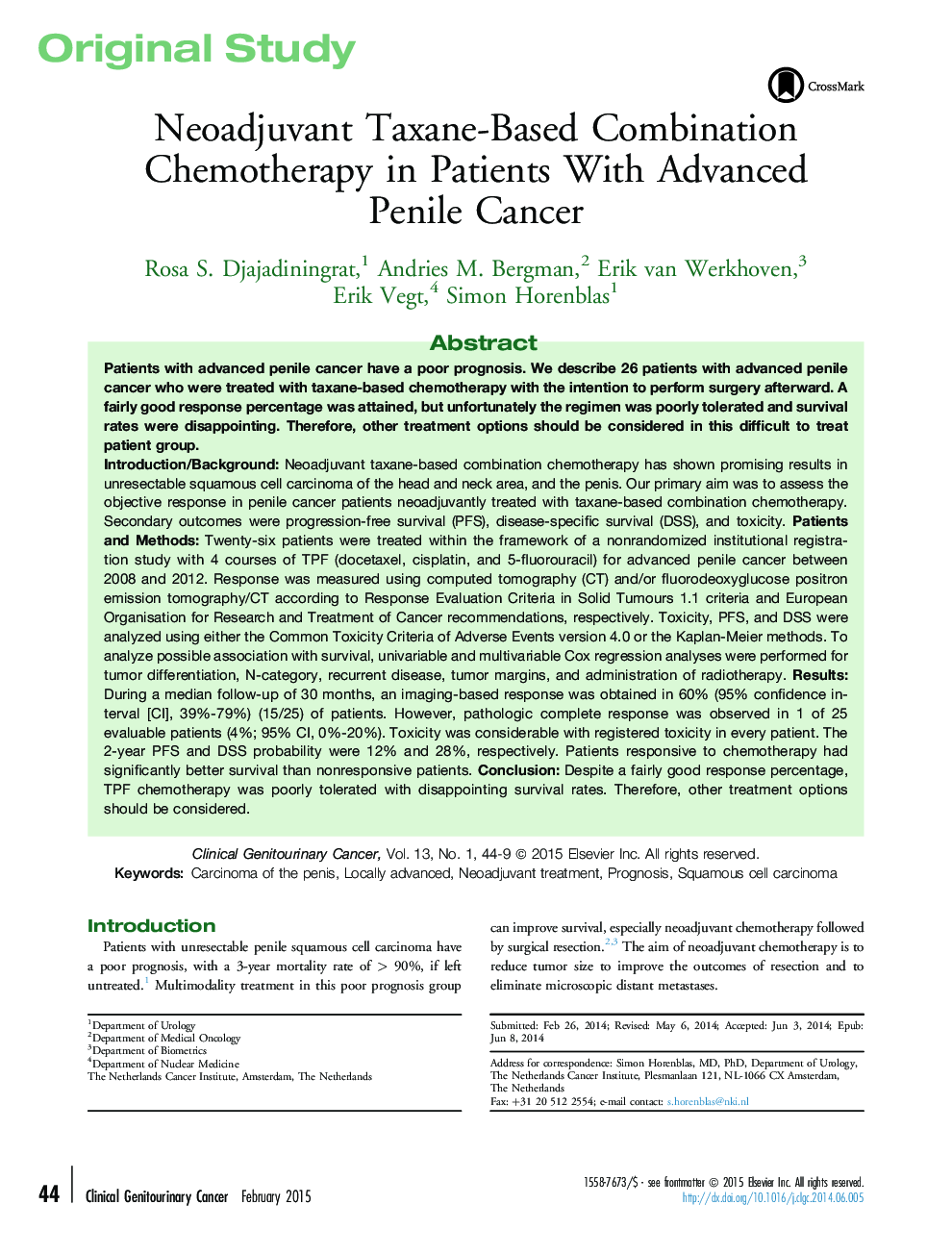| کد مقاله | کد نشریه | سال انتشار | مقاله انگلیسی | نسخه تمام متن |
|---|---|---|---|---|
| 5882524 | 1149547 | 2015 | 6 صفحه PDF | دانلود رایگان |

Introduction/BackgroundNeoadjuvant taxane-based combination chemotherapy has shown promising results in unresectable squamous cell carcinoma of the head and neck area, and the penis. Our primary aim was to assess the objective response in penile cancer patients neoadjuvantly treated with taxane-based combination chemotherapy. Secondary outcomes were progression-free survival (PFS), disease-specific survival (DSS), and toxicity.Patients and MethodsTwenty-six patients were treated within the framework of a nonrandomized institutional registration study with 4 courses of TPF (docetaxel, cisplatin, and 5-fluorouracil) for advanced penile cancer between 2008 and 2012. Response was measured using computed tomography (CT) and/or fluorodeoxyglucose positron emission tomography/CT according to Response Evaluation Criteria in Solid Tumours 1.1 criteria and European Organisation for Research and Treatment of Cancer recommendations, respectively. Toxicity, PFS, and DSS were analyzed using either the Common Toxicity Criteria of Adverse Events version 4.0 or the Kaplan-Meier methods. To analyze possible association with survival, univariable and multivariable Cox regression analyses were performed for tumor differentiation, N-category, recurrent disease, tumor margins, and administration of radiotherapy.ResultsDuring a median follow-up of 30 months, an imaging-based response was obtained in 60% (95% confidence interval [CI], 39%-79%) (15/25) of patients. However, pathologic complete response was observed in 1 of 25 evaluable patients (4%; 95% CI, 0%-20%). Toxicity was considerable with registered toxicity in every patient. The 2-year PFS and DSS probability were 12% and 28%, respectively. Patients responsive to chemotherapy had significantly better survival than nonresponsive patients.ConclusionDespite a fairly good response percentage, TPF chemotherapy was poorly tolerated with disappointing survival rates. Therefore, other treatment options should be considered.
Journal: Clinical Genitourinary Cancer - Volume 13, Issue 1, February 2015, Pages 44-49